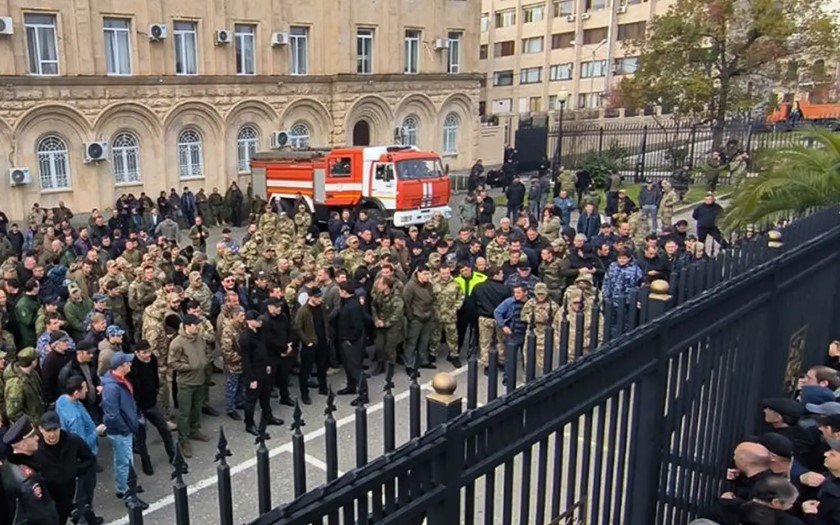Georgia’s political landscape took a dramatic turn as the governing Georgian Dream party installed Mikheil Kavelashvili, a former professional footballer turned far-right politician, as the country’s new president. The decision, made in a contentious vote on December 14, has heightened tensions in a nation already roiled by protests and allegations of election irregularities.
Kavelashvili, a 53-year-old former Manchester City striker, was the sole candidate in the vote conducted by a 300-seat electoral college rather than through a direct popular vote. The arrangement stems from constitutional changes introduced by Georgian Dream in 2017, which have faced widespread criticism for centralizing power.
Opposition Boycott Amplifies Controversy
The vote occurred against the backdrop of an opposition boycott, with parties refusing to participate in what they described as an illegitimate process. The October legislative elections, marred by allegations of bribery and double voting, further deepened the country’s political divide.

Al Jazeera correspondent Dmitry Medvedenko, reporting from Tbilisi, emphasized that Kavelashvili faced no challengers because the opposition deemed the government illegitimate. “They are staying away from any process that could give this administration a veneer of legitimacy,” he reported.
President Salome Zurabishvili, whose term was marked by her election via popular vote, has been a vocal critic of the current system. Declaring the legislature unconstitutional, she stressed the need for a president chosen by the people.
Protests Sweep Across the Country
In the lead-up to the presidential vote, antigovernment protests gripped Georgia’s capital, Tbilisi, and spread to other regions. Demonstrators, carrying Georgian and EU flags, voiced their opposition to the government’s perceived drift away from democratic norms and European integration.
One protester, Tamara Khutsishvili, said, “This isn’t just about who becomes president. It’s about whether our country has a future in Europe or falls back under Russian influence.”
Key figures in the opposition have drawn parallels between Georgia’s current trajectory and Russia’s authoritarian regime under Vladimir Putin. Opposition leader Zurab Japaridze described the protest as a critical juncture: “We either resist this or surrender to an undemocratic system.”
The EU Dimension
Georgia’s political crisis has also raised concerns in Brussels. The European Union has been a significant player in the country’s political and economic development, but relations have soured in recent months.
The government recently delayed EU accession talks until 2028, a decision seen by many as a setback for the country’s European aspirations. The move was met with disappointment among Georgians who overwhelmingly support closer ties with Europe.
Photos of nightly protests, featuring tens of thousands of participants, have underscored the population’s frustration with the current administration. Yet, the government continues to assert its legitimacy, pointing to procedural compliance with constitutional amendments as a justification for its actions.
The Kavelashvili Presidency: A Turning Point or a Dead End?
The newly inaugurated president faces significant challenges. Beyond his limited political experience, Kavelashvili inherits a deeply divided country, with public trust in the government at an all-time low. Critics argue that his far-right stance could further alienate Georgia from its Western allies.
Observers also warn that the ongoing unrest could spiral into a prolonged crisis. As protests enter their third consecutive week, the government’s response—marked by arrests and allegations of police brutality—has drawn international scrutiny.
The coming weeks will be crucial in determining Georgia’s political direction. Will the Kavelashvili administration find a way to bridge the divide, or will the opposition and protesters continue to pressure for systemic change? One thing is certain: the stakes have never been higher for Georgia’s democracy.
